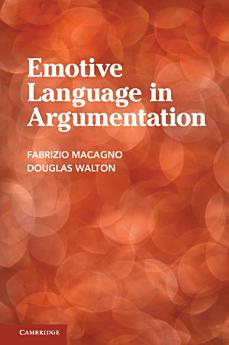Emotive Language in Argumentation
Об электронной книге
Об авторе
Fabrizio Macagno is a postdoctoral researcher at the Universidade Nova de Lisboa, Portugal, where he teaches courses on argumentation theory and conducts research in the field of argumentation and communication. He is doing research in the field of argumentation and philosophy of language in cooperation with the University of Windsor, Ontario. His research interests are focused on the relationship between argumentation and semantics, which he investigates from epistemological, logical and linguistic perspectives. He co-authored Argumentation Schemes (Cambridge University Press, 2008). His articles have appeared in international peer reviewed journals such as Pragmatics and Cognition, the Journal of Pragmatics, Argumentation, Ratio Juris, Philosophy and Rhetoric, and Informal Logic.
Douglas Walton is a Professor of Philosophy, Assumption Chair in Argumentation Studies and Distinguished Research Fellow of the Centre for Research in Reasoning, Argumentation and Rhetoric at the University of Windsor, Canada. His most recent book is Argumentation Schemes, coauthored with Chris Reed and Fabrizio Macagno (Cambridge University Press, 2008). Walton's work has been used to better prepare legal arguments and to help develop artificial intelligence. His books have been translated worldwide and he attracts students from many countries to study with him.







